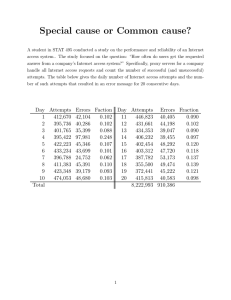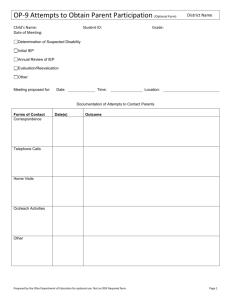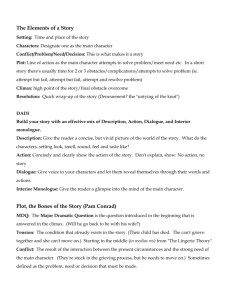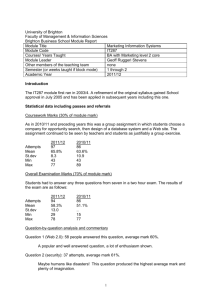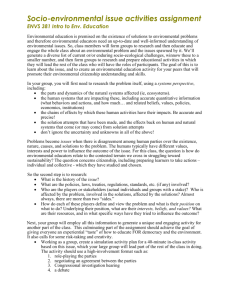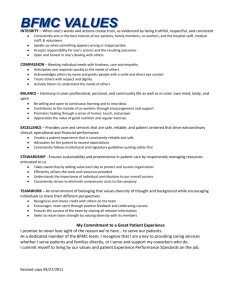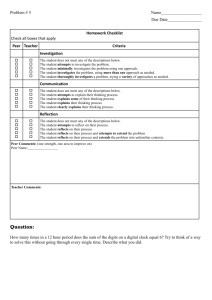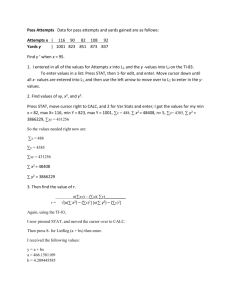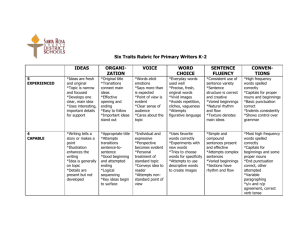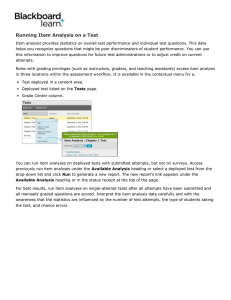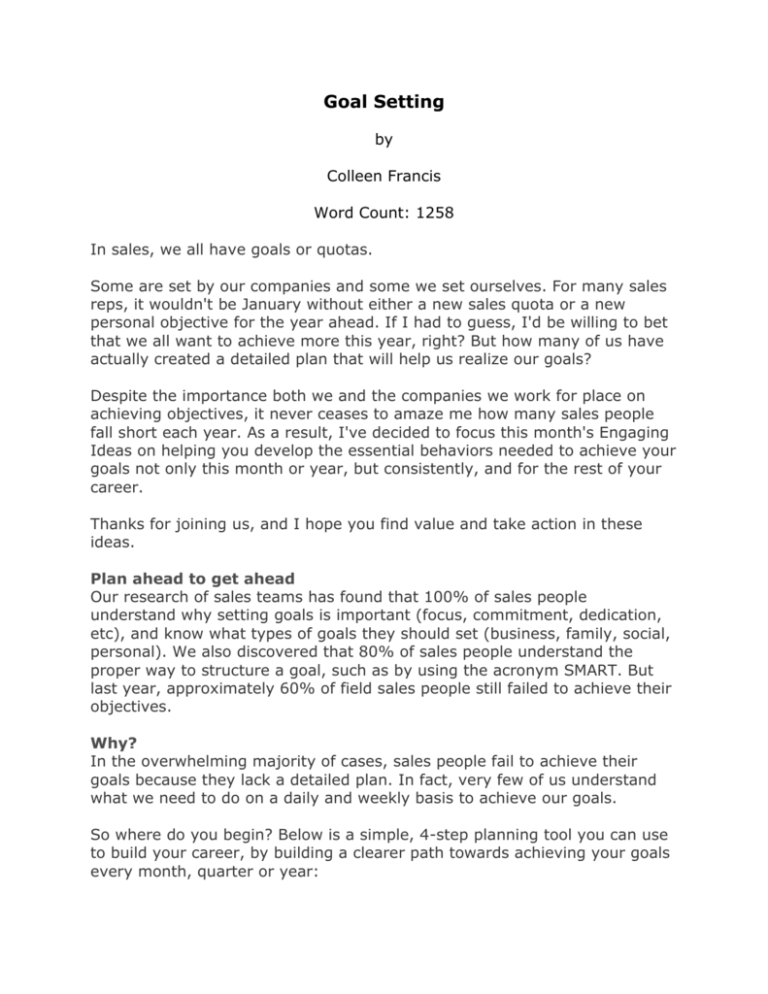
Goal Setting
by
Colleen Francis
Word Count: 1258
In sales, we all have goals or quotas.
Some are set by our companies and some we set ourselves. For many sales
reps, it wouldn't be January without either a new sales quota or a new
personal objective for the year ahead. If I had to guess, I'd be willing to bet
that we all want to achieve more this year, right? But how many of us have
actually created a detailed plan that will help us realize our goals?
Despite the importance both we and the companies we work for place on
achieving objectives, it never ceases to amaze me how many sales people
fall short each year. As a result, I've decided to focus this month's Engaging
Ideas on helping you develop the essential behaviors needed to achieve your
goals not only this month or year, but consistently, and for the rest of your
career.
Thanks for joining us, and I hope you find value and take action in these
ideas.
Plan ahead to get ahead
Our research of sales teams has found that 100% of sales people
understand why setting goals is important (focus, commitment, dedication,
etc), and know what types of goals they should set (business, family, social,
personal). We also discovered that 80% of sales people understand the
proper way to structure a goal, such as by using the acronym SMART. But
last year, approximately 60% of field sales people still failed to achieve their
objectives.
Why?
In the overwhelming majority of cases, sales people fail to achieve their
goals because they lack a detailed plan. In fact, very few of us understand
what we need to do on a daily and weekly basis to achieve our goals.
So where do you begin? Below is a simple, 4-step planning tool you can use
to build your career, by building a clearer path towards achieving your goals
every month, quarter or year:
1. Define your objective and make this definition quantifiable. What,
specifically, are your sales and production goals for the year? FOR EXAMPLE
- "I want to close $1,000,000 in new business and $1,000,000 in existing
client repeat business this year."
2. Plan to succeed. How do your goals break down into quarterly, monthly,
weekly and daily goals? Here's an example of a sales quota, and how an
average sales person can expect to perform:
New business goal: $1,000,000
Average sales size: $50,000
Total sales needed to achieve goal: 20
Based on average sales statistics (or, even better, using your own),
this means that, to accomplish your goals for the year, you can
assume the following:
The average sales person closes 1:3 qualified leads. Therefore, to
make 20 sales, our sample sales person needs 60 qualified prospects.
The average sales people needs to meet 3 prospects in order to qualify
1. So in the above example, our sales person needs to meet 180
prospects.
The average sales person needs to make 20 attempts (phone calls,
voice mail, e-mail, etc) to get one meeting. So, our sales person needs
to make 3600 attempts this year.
If this sounds like a frightening number, remember that 3600
attempts over the course of a year really only translates into:
300 attempts per month;
75 attempts per week; or
Just 15 attempts per day.
Now that's what I call an easy plan to follow!
3. Execute your plan. To give you a baseline on the amount of time it
takes to make these daily calls, I make 25 attempts per day, which takes me
2-3 hours to complete. As Zig Ziglar says, "Daily objectives are the best
indicators of character." Here are some tips to help you complete your daily
sales goals:
Start today - half the battle is just showing up!
Track your attempts, meetings and close ratios consistently, and
measure your results. Then adjust your plan based on your real
metrics. You may find that you're above or below the averages I've
used in this example, but if you don't measure to find out, you won't
know where to improve.
Commit yourself to detailed accountability. The top 10% of sales
performers have one thing in common: they are committed to detailed
accountability. Mark the time you're going to spend attempting to
reach customers in your calendar each day or week, and close your
office door until you've completed it. While you're at it, turn off your email and don't take in-bound calls. If you work in a cubical, find a
closed office in which to do your prospecting. In other words, force
yourself to stay focused and avoid distractions. The fewer distractions
you have, the faster the work will get done.
Prospect consistently. Whether you chose to make all your weekly calls
in one day or do a small amount each day doesn't matter. What
matters is that you are consistent. Think of yourself as a professional.
Tiger Woods would tell you that it's the consistency of his practice time
- the 100s of balls he hits and putts he makes every day - that leads
to ultimate success.
4. Reinforce your goals to stay motivated.
Keep records and make lists. Successful sales people record their
progress toward each goal every day, and then list the 5 most
important things they need to do the next day to move that goal even
further ahead. This short "To Do" list is 100% focused on achieving
their goals, because the most successful sales people understand that
daily discipline is the key to reaching your goals.
Tasks that are rewarded are tasks that get done. Find a way to reward
yourself after your calls are made each day. My personal reward for
completing all daily prospecting calls is a trip to the local Starbucks for
my favourite "vente triple shot non fat mocha!" No calls, no coffee it's that simple. Guess what gets done first thing each morning?
Write your goals down, update them constantly based on your real
results, then make them public and display them close by. Studies
show that people who share their goals with others are 70% more
likely to achieve them. Share your goals with those people you respect
the most, and you'll work harder to ensure that you don't disappoint
them.
What conclusion can we draw from all this?
The difference between top sales performers and the rest of the field is
clear. Top performers have a plan to achieve their goals, and they act on
that plan every day. This year, commit yourself to being a top performer.
Design a daily and/or weekly plan, act on it consistently and monitor your
results.
It's been said that most people aim at nothing and hit it with surprising
accuracy. We all have a goal in mind. Whether you hit it or not will depend
on your ability to define and focus on the tasks that lead to your goal
consistently.
"One person with a commitment is worth a hundred who only have an
interest" - Mary Crowley. Make this the year in which you become that one.
Colleen Francis, Sales Expert, is Founder and President of Engage Selling
Solutions (www.EngageSelling.com). Armed with skills developed from years
of experience, Colleen helps clients realize immediate results, achieve lasting
success and permanently raise their bottom line. Start improving your
results today with Engage's online Newsletter Engaging Ideas and a FREE 10
day intensive sales eCourse: www.EngagingIdeasOnline.com. © 2008,
Colleen Francis. All rights reserved. For information contact FrogPond at
800.704.FROG(3764) or email susie@FrogPond.com;
http://www.FrogPond.com.

